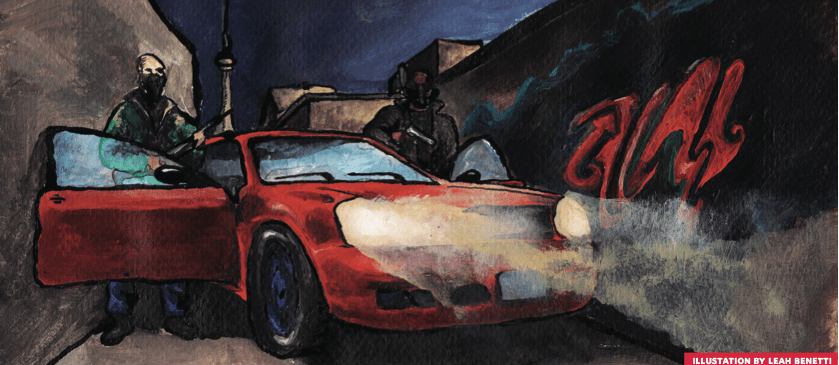As of its late September release, the fifth installment of Rockstar’s popular game franchise Grand Theft Auto marked its place in history as the most commercially successful product in entertainment history, raking in over $800 million U.S. worldwide in its first day of sales.
A majority of gamers laud the series as a whole, but it’s this title in particular that set the bar for the upcoming eighth generation of gaming, sparking the interest of devotees and newcomers to the franchise.
Specifically, he notes the realism as a prominent new feature of the game.
“Not only does it employ real- time physics and realistic movements, but it also incorporates real life,” he says. “For example, in the old games, you could steal som one’s car and get away. But now, the citizens [could] call the cops.”
YouTube personality and games journalist Joe Vargas (aka “Angry Joe”) cites the new release as “a mature story based in reality,” which takes a satirical approach to modern culture.
He explains this perspective, that of satire, has always been subject to criticism and resulting controversy in the mainstream media even when it came to the previous games, with a widespread inability to interpret the subtext and irony present within the game’s content.
http://www.youtube.com/watch?v=A0RLOOyhr9M
Critical analysis of the series has been fuelled since its inception. Pulitzer-Prize-winning author Junot Diaz, writing for the Wall Street Journal, describes in the series as relatable because they “let you, in a way, play a person — an aberrant criminal killer of a person, but a person nevertheless.” Another fan of the series, Emilia
Vieni, a third-year student in professional writing, says, “People should be expected to have a certain maturity about things like violence, which I believe should allow anyone to rationalize the game even if they personally don’t like it.” Game developers, much like any other artists, attempt to present themes that resonate with society, and in Rockstar’s case, they generally veer towards more controversial themes and subject matter.
GTA V does this, says Angry Joe, by touching on issues like torture, corruption, corporate greed, and the mistreatment of women.
“Rarely does a game touch on any of these subjects, and GTA boldly includes them all,” he says.
There is still debate on whether or not a game should expose these sorts of themes, which perhaps speaks to why GTA is so popular in the first place: it’s transgressive in its construction, choosing to confront its audience head on.
In critiquing the fourth installment of GTA, Diaz wrote, “GTA IV is a game that allows you to forget how screwed-up and complicated things are in the real world; it could have done more, it could have put that screwed-up complicated world front and center.”
It’s then arguable they’d be missing the point of why it’s there to begin with. While the game actively does not pick a political side in regards to the issues it explores, it still acknowledges they exist. The inherent suggestion is that there should be discussion, regardless of depiction.
The characters in GTA V are criminals, which gives players the ability to “be someone they don’t want to be,” says Angry Joe. The game gives an honest citizen a chance to see what life looks like on the other side of the road, should they choose to take it.
The criminality of the characters in GTA V raises a lot of questions. Angry Joe points out, for example, that in the game, there is always a reason attached to why a criminal has resorted to illegal activity, like being in trouble with a gang leader or a drug lord.
Details like these, he says, are overlooked by critics, as well as many of those who study violence in the media.
The wider consequences of violence in video games continue to be debated. One only needs to look a few weeks back at Zachary Burgess, a young man who decided to simulate actions from the game in real life by stealing a pickup truck, kidnapping a woman, and crashing into nine parked cars, to see why this debate is still important.
Fans of the game and many scholars will defend it.
“If someone commits violent acts, it is not just from one source such as a game, but many other things that have contributed into their life that have added to that kind of action,” says Vieni. “If you already know what GTA is about, and you can be rational, then it is honestly just a fun game.”
Milica Markovic
Contributor



